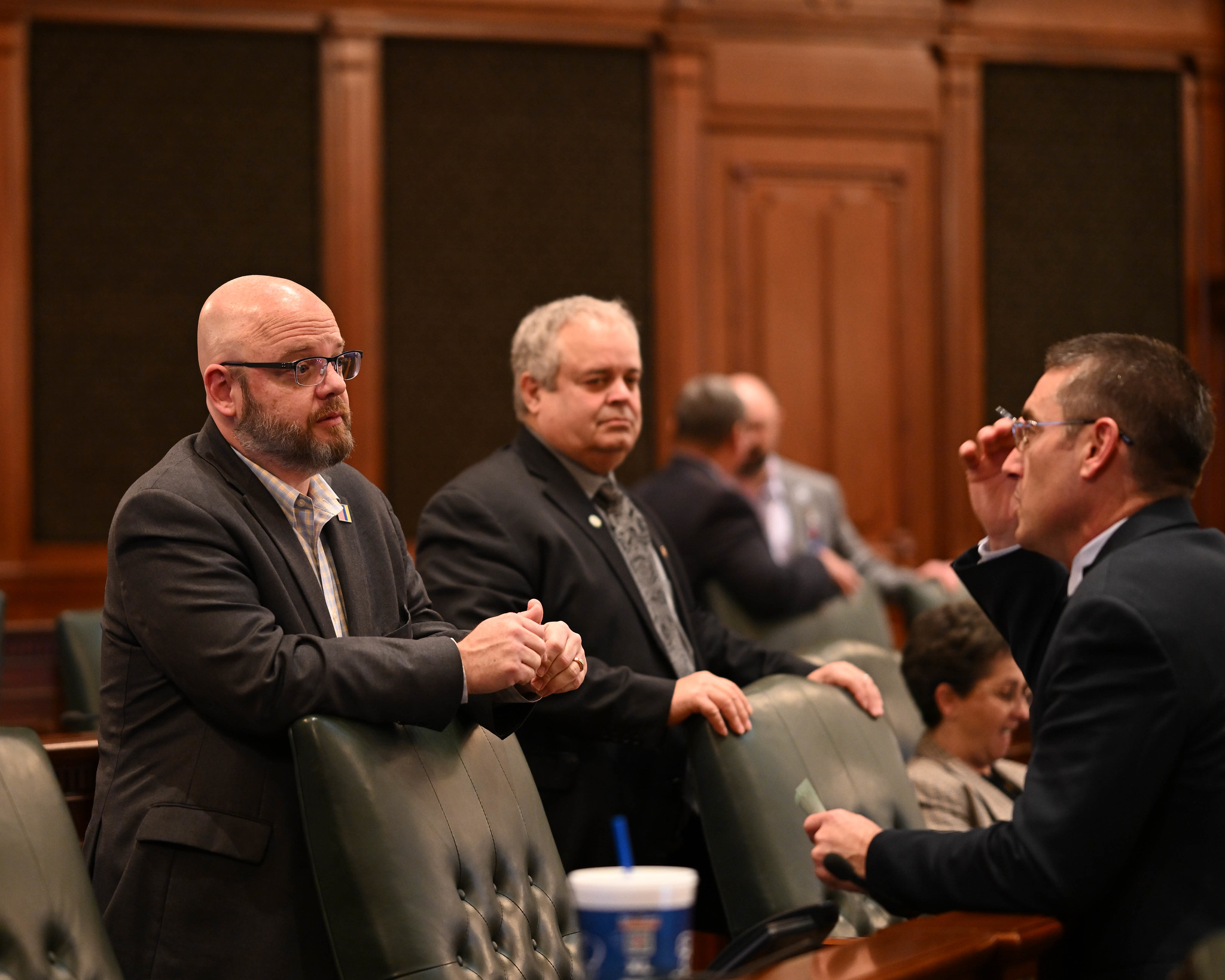In 2008, Illinois enacted the Biometric Information Privacy Act (BIPA). The intended purpose of the law was to protect employees and individuals’ biometric information, such as fingerprints and facial recognition, among other personal identifiers, from being tracked and used without a person’s consent. However, two recent rulings by the Illinois Supreme Court have highlighted serious flaws in the law that open up job creators to immense financial damages well beyond the intended scope of the law.
To address the unintended consequences within BIPA, State Representative Jeff Keicher (R-Sycamore) has filed legislation, along with support from the Illinois Manufacturers’ Association (IMA) and the Chicagoland Chamber of Commerce, which clarifies BIPA while ensuring its goal of protecting biometric information from abuse is achieved.
“It’s no secret Illinois is already one of the most difficult places in the country to start and grow a business,” said Keicher. “The recent decisions by the Illinois Supreme Court concerning our biometric privacy law highlight just how bad the climate is for job creators and why we need to take action quickly to address the unintended consequences.”
In the recent ruling in Cothron v. White Castle, the court ruled that anytime biometric data is collected without written release a violation occurs, rather than only the first time the data is collected. The case hinged on the fact White Castle uses a fingerprint time clock system, something commonly used by many employers. The ruling opens up White Castle to the possibility of $17 billion in fines, well beyond the intended purpose of BIPA.
In the recent Tims v. Blackhorse Carriers, Inc. case, the court ruled that because of ambiguity in BIPA, the 5-year statute of limitations applies for filing suit rather than 1-year as allowed under the Illinois Code of Civil Procedure. Both rulings state that a plaintiff does not need to demonstrate harmed was suffered to seek damages, as is commonplace under most other circumstances.
The legislation filed by Keicher, House Bills 2335 and 3199, seek to address the problems in BIPA in several ways. Among the solutions in the legislation, the definition of several terms are clarified, along with allowing consent to use biometric data to be obtained electronically. In addition, when data is used repeatedly (like a time clock), consent only needs to be obtained the first time, and a timetable is also spelled out for a person to file a complaint and have the issue remedied before legal action is pursued.
“Manufacturers appreciate Rep. Jeff Keicher’s leadership in fighting for necessary and common-sense reforms in our court system,” said Mark Denzler, President and CEO of the Illinois Manufacturers’ Association. “Illinois’ current BIPA law, and recent court decisions, have resulted in more than 1,500 lawsuits and billions of dollars in damages, even when there has been no harm to an individual. The latest Court decision will increase penalties astronomically on employers meaning higher costs for consumers. It’s time to stop the insanity and enact common sense reforms that protect businesses and a person’s right to privacy.”
“Since the law passed in 2008, businesses of all sizes and sectors have been targeted with devastating legal action for routine practices that unknowingly violate BIPA standards – but now we’re seeing BIPA being weaponized by predatory class action attorneys against small businesses and non-profits who don’t have the means to fight back,” said Jack Lavin, President and CEO of the Chicagoland Chamber of Commerce. “These frivolous lawsuits not only have a crippling effect on all businesses, but they are also hurting the larger economy by stopping innovative products around security and safety from entering the Illinois market – causing us to fall even further behind in these vital sectors.”
Keicher concluded, “Each person has the right to have their biometric data protected and not used without consent, but sometimes laws with good intentions lead to costly errors. Now we need to fix those errors before we see even worse outcomes.”
Rep. Keicher serves the 70th District, which includes portions of DeKalb, Kane, and McHenry Counties.
